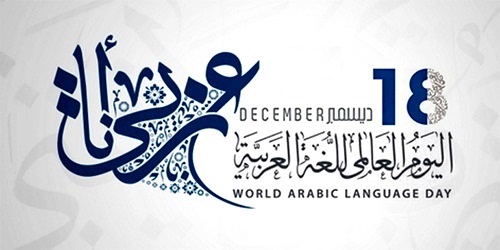UN Arabic Language Day

December 18 – UN Arabic Language Day
The event was established by UNESCO in 2010 seeking "to celebrate multilingualism and cultural diversity as well as to promote equal use of all six of its official working languages throughout the organization".
Objectives
- This day aims to highlight the cognitive, intellectual and scientific contribution of this language and its usage in the various fields of human knowledge.
- This day seeks to emphasize the centrality of Arabic, which is one of the most widely spoken Semitic languages today.
Historical Context
- In 1948, the 3rd General Conference of UNESCO declared that Arabic, in addition to English and French, will become the third working language of the governing bodies meeting in an Arabic-speaking country.
- In 1960, the General Conference recognizes the importance of the Arabic language and declares that UNESCO documents would have the greatest appeal in the Arabic-speaking countries if they were circulated in Arabic.
- In 1966, a resolution is adopted to increase the presence of the Arabic language at UNESCO and implement simultaneous interpretation from and into Arabic during the plenary sessions, as well as to translate important documents.
In 1974, the General Conference adopts Arabic as the official language.
Challenges
The Arabic language faces challenges that prevent it from being able to keep pace with modernity and the huge scientific and technological advances.
- The language faces problems, including the absence of government policies to develop it, and the weakness of scientific research in the sciences of language and linguistics.
- The sovereignty of Western languages inherited from colonialism is an obstacle to the prosperity of the Arabic language and the restoration of its status.
- Poor technology, slow translation, and digitization.
- The reality of the Arabic language reflects the state of fragmentation, the most prominent manifestation of which is the failure of the Arab countries to standardize terminology





